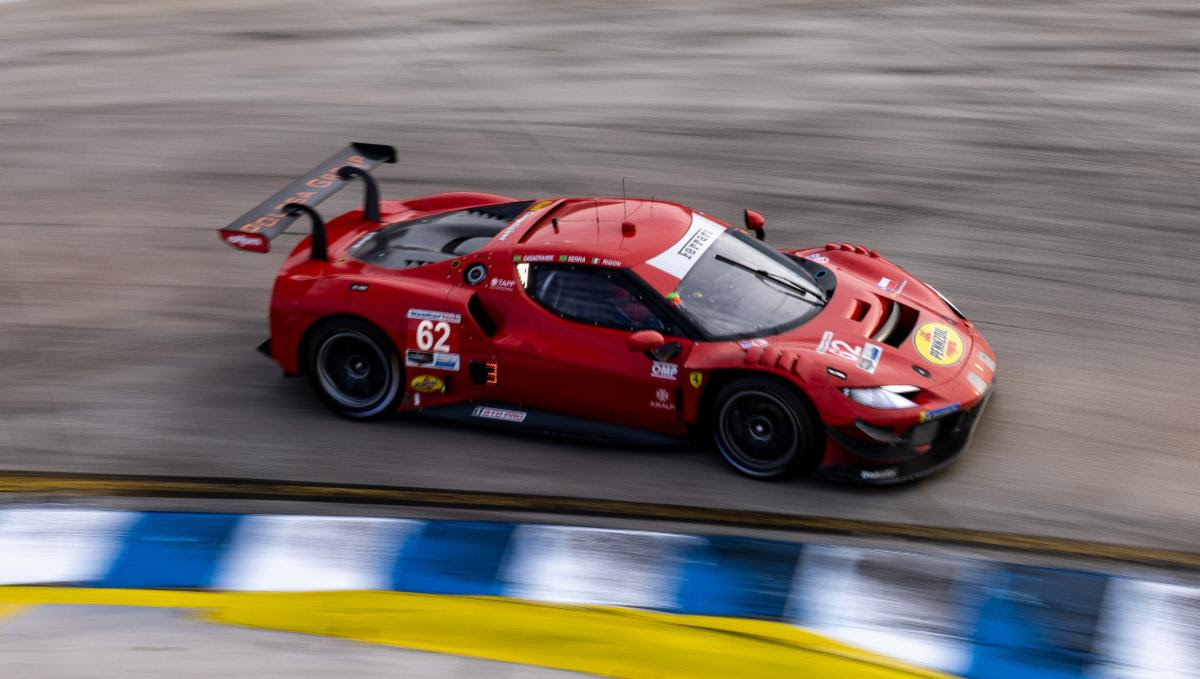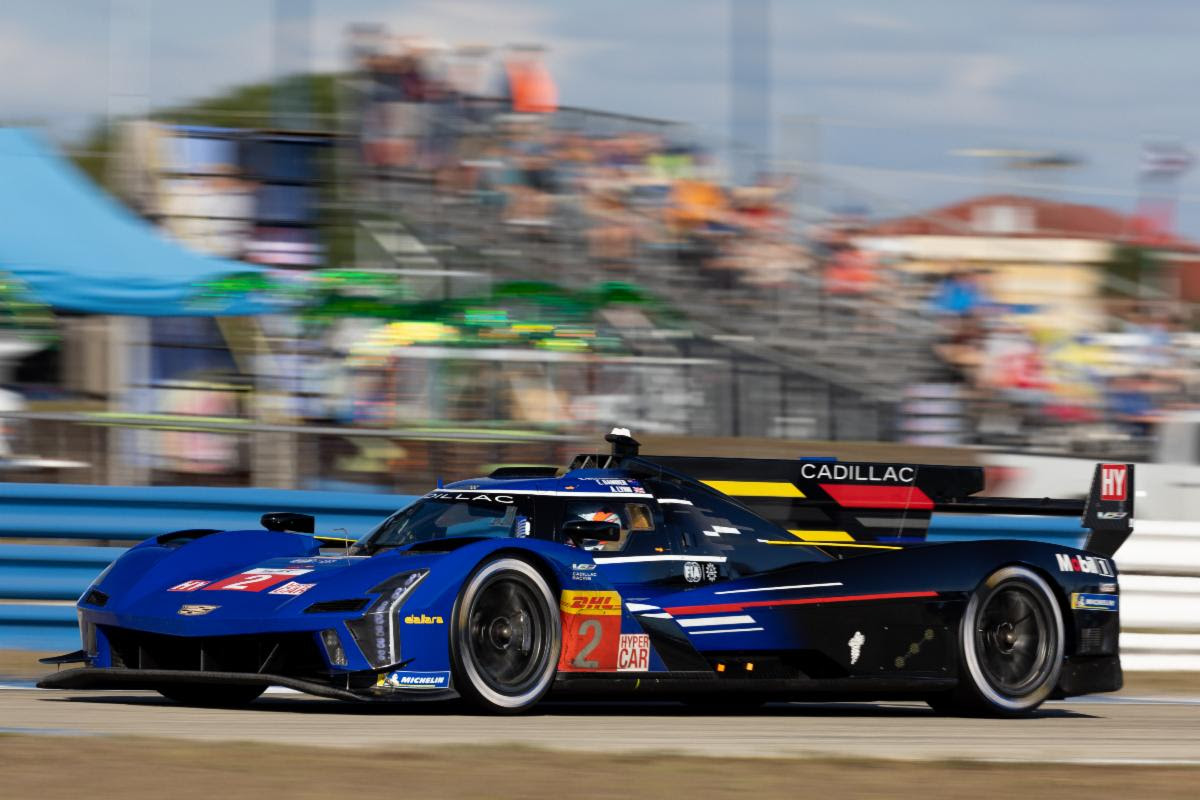Transcript: Defending pole and race winner aims for repeat in No. 01 Cadillac V-Series.R
Renger van der Zande, co-driver with Sebastien Bourdais of the No. 01 Cadillac V-Series.R in the Grand Touring Prototype class of the IMSA WeatherTech SportsCar Championship, met with the media via Zoom conference to preview the April 14-15 race in Long Beach, California.
Van der Zande and Bourdais will look to successfully defend their race win on the 1.968-mile, 11-turn temporary street circuit. Cadillac has won every IMSA prototype race at Long Beach since the start of the DPi era in 2017.
Q&A with van der Zande transcript:
As you prepare for this event and look back on last year, what comes to mind?
“I think the Long Beach Grand Prix is always special. I finished second there a lot and then last year won it finally so happy to go there and defend the win. This year it’s with a new car. We haven’t raced the Cadillac LMDh on any street track. You never know what to expect. We know from the past that Long Beach is a hard track for tires; tire degradation can be hard. The DPi Cadillac was always good with that; I think it was an advantage compared to the competition. We have a weapon this year, which is Sebastien Bourdais my teammate. He was flying last year. I think it was very special to see him go. He even planted it in the wall and still drove back to first place. I had to drive it home and that’s a very comfortable position, though it’s never easy on a street track. Of course, I had to do some work. We got it done and we won that race. (This year) the car is a little heavier than the DPi, it has less downforce than a DPi, it has more power. At the same time are systems that under braking can be tricky, so what to do with all the bumps and different tarmac changes and the curbs. For example, around the fountain is something to consider. We are discussing that right now with our engineers to be best prepared. It’s an interesting street track. It’s always spectacular. It’s always something happening with that last hairpin, and it’s also a lot of stop and go, 90-degree corners that you have to deal with and, of course, the fountain. Turn 1 is always a guess on how much grip you have, flying toward that outside wall. It’s not an easy track and let’s see what we can make of it. Not much lost at Sebring, but at the same time I’m still digesting that one going to Long Beach.”
With new homologation, closer performance level and BoP rules with the GTP cars, will that open the door for other manufacturers to be on more level ground than previously at a street circuit?
“LMDh is a different platform where the weight is the same, the power is the same, the basics of the car are the same. We all have the same tires, the same weight, the same power. I do think that things are much closer. We’re all searching here and there for details and fine-tuning the setup – from the engine side, the chassis side and the aerodynamics and balance everything. What you saw at Sebring and Daytona is it’s pretty close. Going to Long Beach, I think it’s a new starting level. It have a strong feeling that it is more equal than ever before.”
Are there differences in the way the GTP cars are racing each other compared to the DPi?
“I feel it’s hard to overtake. The speeds are higher but we have to brake a bit earlier and the weight is higher as well, so the minimum speed is a lot lower. You rely on let’s brake super late and dive bomb someone and get away with it. I think if you dive bomb someone you’re going straight so you’re going to miss the corner. I feel that in traffic it makes a bigger difference. You can see the last part of Daytona, there were some faster cars in front of us and when there was traffic there were gaps and those gaps remained, so there are a few spots on track where you can overtake and you’re limited more than the DPi in those spots. I think with the DPi you could overtake someone on track because you have a bit more downforce, you had more minimum speed grip to get away with a mistake. These cars, if you out-brake yourself you’re actually going to out-brake yourself and go off the track. You have to be a bit more careful. Traffic management is super important. The GTs are really in cooperation with the GTPs.”
Talk about the Long Beach hairpin and the role it plays in the race.
“I think the steering on our Cadillac is a bit better than it was on the DPi, so I think that won’t be a problem. We’ve seen a lot of action there, some misfortune for some people stranded there. It’s one of those do-or-dies on the last corner of the last lap of the race. That makes Long Beach a difficult street track with no room for error. Around that corner there really is only one line. If you dive bomb on the inside you probably won’t get away with it. If you do, might get lucky and win that race. Also in GTP, spare parts are at a premium, we don’t have that much stock. If you keep on taking off bits of the car in the first practice, second practice and then qualifying, it’s something to keep in mind. That last corner is special, and the corner before that – the long left-hander with all the drifting rubber – it’s easy to screw it up a well.”
About cold tires on the GTP car.
“Our cold tires are super tricky. I had an LMP2 driver to come me and ask if we were still charging our hybrid system when we were coming out of the pits because why are you so slow. I said nothing like that, it’s just no grip at all. If you’re coming out of the pits and you’re racing each other you have zero grip. The GTP drivers must think we have a problem, but really trying to get a read on the tires, temperature and grip. So, that’s another element in this championship.”







